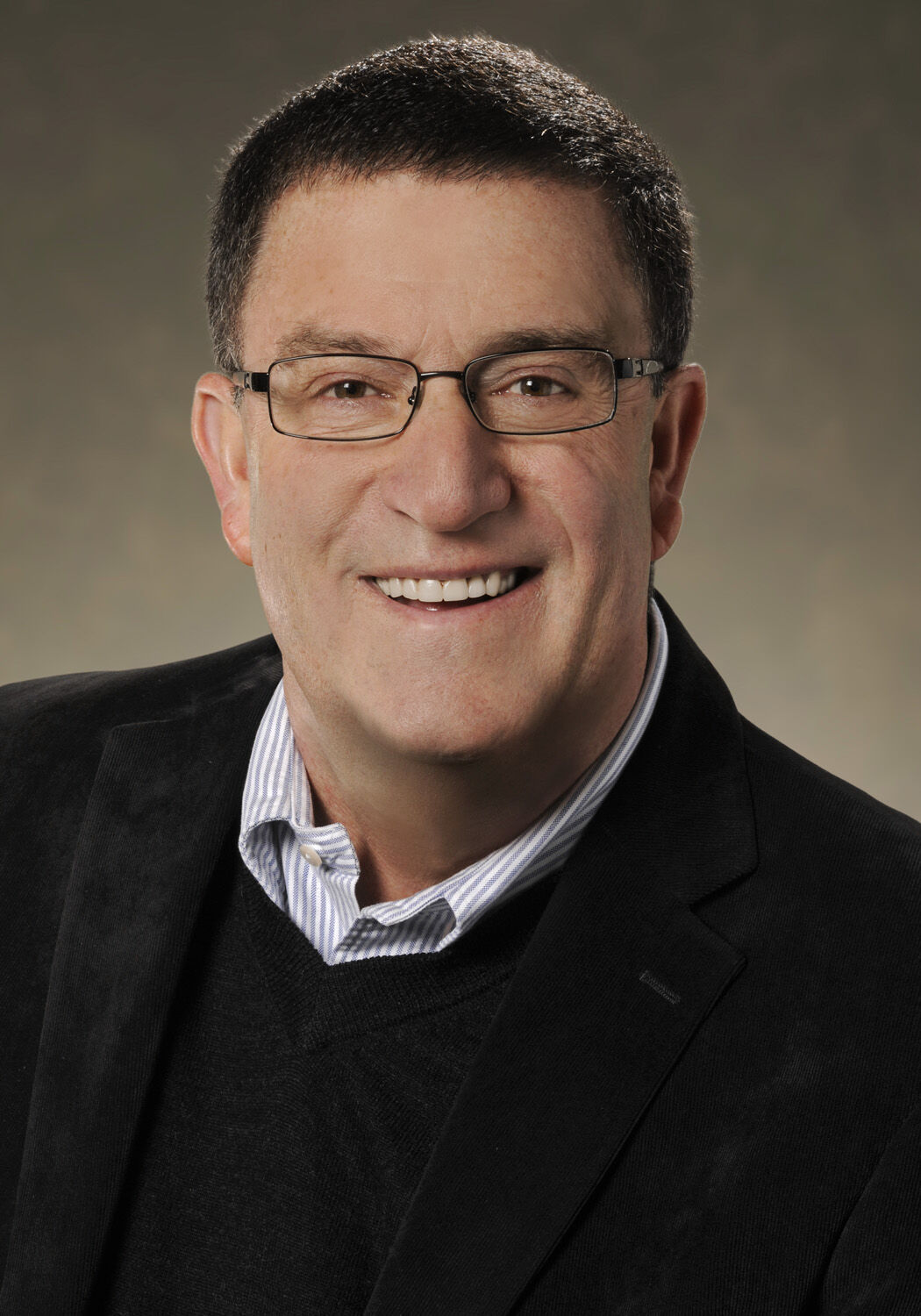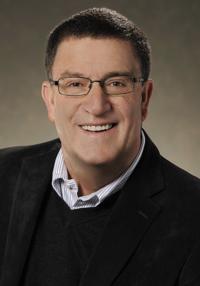SONDERMANN | Colorado’s glass ceiling remains

Eric Sondermann
Larry Laszlo


Eric Sondermann
Larry Laszlo
Georgia. Idaho. Indiana. Pennsylvania. Virginia. Ohio. Utah.
And Colorado.
Those are the eight states — out of 50, last I looked — that have never elected a woman to the high statewide office of either governor or U.S. senator.
As the second state in the union to enact women’s suffrage (behind only Wyoming), it is both significant and surprising to find Colorado on this list of the tardy. But there we sit. The list may shrink further if appointed Sen. Kelly Loeffler wins election in her own right in the impending Georgia runoff.
Those looking for a single, definitive, all-encompassing explanation should turn elsewhere. Politics, like life, is complex. But let’s discuss this history and identify some of the factors that have led us to this pass in a progressive state and a supposedly enlightened, inclusive era.
By my account, four women have come close to one of these prizes without getting there. Two lost close general elections. In 1980, Republican Mary Estill Buchanan lost a Senate race to incumbent Democrat Gary Hart by a slender 19,000 vote margin. In 1998, Democrat Gail Schoettler was defeated for the open governor’s office by Republican Bill Owens by a mere 8,297 votes.
Two others, again one from each party, lost primary contests which had they won quite likely would
have led to a November victory. In the Tea Party year of 2010, Jane Norton was somehow tagged as insufficiently conservative and lost the GOP Senate primary to Ken Buck. Given the Republican tide, Norton would have been the favorite to defeat Democrat Michael Bennet, a trick Buck could not manage.
The same is true of Cary Kennedy in the most recent election for Governor. Any Democratic nominee would have prevailed handily given the year. But Kennedy, despite strong showings early in the process, had no chance of competing with Jared Polis’s bottomless checkbook.
Clearly, female candidates start with certain disadvantages and must clear higher bars relative to their male counterparts. In their book, “When Women Vote,” formidable Denver leaders Stephanie Donner and Amber McReynolds make the case that structural reforms are necessary if women are to consistently reach the highest political ranks.
First up is money, often described as, “the mother’s milk of politics.” Unlike human anatomy, in politics that milk is most often produced and dispensed by men.
Think of the networks so influential in Colorado campaigns. Those at the upper echelons of the largest law firms and major companies are still disproportionately male. Vestiges of a “good old boys” mentality still remain.
Networks exist largely to advance and take care of their own. As noted by former Colorado First Lady and 1998 Democratic Senate nominee Dottie Lamm, “If John Hickenlooper had been ‘Jane’ Hickenlooper, with the same political and presidential candidate experience, would she have been so quickly embraced to the exclusion of all others?” It is a fair question, for sure.
Money also conveys the coveted political “viability” which keeps some very able women from ever getting to the starting gate. Most high officeholders come from the ranks of the establishment which is made up of proven political winners. Again, that is principally a boy’s club; and one slow to change.
It also seems inarguable that women candidates are judged by different standards. Dress and appearance remain a topic of conversation while men running for the same office must only pick between the red and blue tie. Though, blessedly, Kamala Harris’s attire was the subject of far less commentary than Hillary Clinton’s had been four years prior.
Flashing back to 1998, Gail Schoettler was deemed by many to be highly capable and intelligent, but to lack warmth and be slow to emote. Whether accurate or not, is that test similarly applied to men? For that matter, how does that persona differ from that of our current governor?
The consuming negativity of campaigns is also an impediment to many on the distaff side. First, it dissuades countless women from joining the fray. Even for those willing to enter and subject themselves to the cheap brutality, it presents a challenge as launching a negative attack is often far trickier for women. That different standard, again.
On top of the offices of governor and U.S. senator, Denver has never elected a woman to the top job. That is despite my damnedest effort way back in 1995 on behalf of Mary DeGroot. Just last year, Jamie Giellis came close, but not that close. In both instances, the city flirted with the female challenger only to then have the entire business, civic and political establishment link arms to save the embattled male incumbent.
Of course, that day is coming in Colorado, as it arrived years ago in most other states, when an unquestionably qualified woman candidate achieves that high office. As to why Colorado is lagging years behind, my inclination is that this is more a product of happenstance than of some prejudice known only at elevation. Nonetheless, those in power around here have not exactly gone out of their way to nurture and promote aspiring female talent.
Both sides of the aisle have highly engaged organizations focused on this task. For Democrats, there is Emerge Colorado, the Electing Women PAC and the BlueFlower Fund. Republicans counter with Colorado Women in Action.
The bench is replete with accomplished, prepared women. They dominate school boards across the state; they comprise roughly half of the General Assembly; and they include the last three speakers of the Colorado House.
The ambition, aptitude and star power abound. But what it will take to break through? And when? While many focus on that “highest, hardest glass ceiling of the Oval Office,” plenty here would settle for demolishing Colorado’s own ceiling that has lasted far too long.
Denver News, Sports & Business | Denver Gazette
Greg Iles, author of ‘Natchez Burning’ trilogy, dies at 65
The Associated Press
the-associated-press@midtc.com
Updated 2 days ago
Facebook Twitter WhatsApp SMS Email Print Copy article link Save Facebook Twitter WhatsApp SMS Email Print Copy article link Save JACKSON, Miss. — Greg Iles, the Mississippi author of the “Natchez Burning” trilogy and other works, has died. He was...
The Associated Press
Reporter
Denver News, Sports & Business | Denver Gazette
From Park Hill Pirate to Arizona Cardinal, love of game keeps Calais Campbell going
Vinny Benedetto
vinny-benedetto@midtc.com
Updated 3 days ago
1 of 1Arizona Cardinals defensive lineman Calais Campbell puts his helmet on during an NFL football practice Tuesday, June 10, 2025, in Tempe, Ariz. (AP Photo/Ross D. Franklin)Vinny Benedetto vinny.benedetto@gazette.com Facebook Twitter WhatsApp SMS Email Print Copy article link Save...
Vinny Benedetto
Reporter
Denver News, Sports & Business | Denver Gazette
Denver Council advances at-large candidate measure, but ranked choice voting fails
Deborah Smith
deborah-smith@midtc.com
Updated 7 days ago
1 of 1Denver residents cast their votes at the McNichols building in Denver on Tuesday, Nov. 5, 2024. (Stephen Swofford, Denver Gazette)Stephen Swofford Denver Gazette Facebook Twitter WhatsApp SMS Email Print Copy article link Save The Denver City Council narrowly...
Deborah Smith
Reporter
Denver News, Sports & Business | Denver Gazette
Broncos safety P.J. Locke really did grow an inch after spinal fusion surgery
Chris Tomasson
chris-tomasson@midtc.com
Updated 1 week ago
1 of 1Denver Broncos head coach Sean Payton speaks during press conference after a preseason NFL football game against the San Francisco 49ers, Saturday in Santa Clara, Calif.the associated press Facebook Twitter WhatsApp SMS Email Print Copy article link Save...
Chris Tomasson
Reporter
Denver News, Sports & Business | Denver Gazette
Amid summer doldrums, Denver housing market sees prices drop
Mark Samuelson
mark-samuelson@midtc.com
Updated 2 weeks ago
1 of 4A home in Greenwood Village that sold over list price last month. “The ones in good shape are getting picked off,” said listing agent Jennifer Markus. Credit Kentwood DTCKentwood DTC2 of 4A home in Greenwood Village that sold...
Mark Samuelson
Reporter
Denver News, Sports & Business | Denver Gazette
With help from two veterans, improvement of Broncos linebacker Levelle Bailey has been ‘night and day’
Chris Tomasson
chris-tomasson@midtc.com
Updated 2 weeks ago
1 of 2Broncos linebacker Levelle Bailey after training camp practice on Friday, Aug. 1 at Broncos Park in Englewood. (Chris Tomasson/The Denver Gazette)Chris Tomasson chris.tomasson@gazette.com2 of 2Denver Broncos linebacker Levelle Bailey (56) during the second half of an NFL football...
Chris Tomasson
Reporter
Denver News, Sports & Business | Denver Gazette
PHOTOS: Broncos Training Camp Week 2
Stephen Swofford
stephen-swofford@midtc.com
Updated 2 weeks ago
[inline_gallery image_url=”aHR0cHM6Ly9ibG94aW1hZ2VzLm5ld3lvcmsxLnZpcC50b3dubmV3cy5jb20vZGVudmVyZ2F6ZXR0ZS5jb20vY29udGVudC90bmNtcy9hc3NldHMvdjMvZWRpdG9yaWFsLzEvMzEvMTMxZDkzM2MtNGY5NS00Y2YzLTg4ZmItODRjODhkYzAyOGI3LzY4OGQxY2VjYWZkNDMuaW1hZ2UuanBn” caption_text=”PHNwYW4gY2xhc3M9ImNhcHRpb24tdGV4dCI+CjxwPkJyb25jb3MgVGlnaHQgRW5kIEx1Y2FzIEtydWxsIHdhcm1zIHVwIGJlZm9yZSB0aGUgc3RhcnQgb2YgcHJhY3RpY2UgZHVyaW5nIEJyb25jb3MgdHJhaW5pbmcgY2FtcCBvbiBGcmlkYXksIEF1Zy4gMSwgMjAyNSAoU3RlcGhlbiBTd29mZm9yZCwgRGVudmVyIEdhemV0dGUpPC9wPgo8L3NwYW4+CjxzcGFuIGNsYXNzPSJjcmVkaXQiPgo8c3BhbiBjbGFzcz0idG50LWJ5bGluZSBhc3NldC1ieWxpbmUiIGlkPSJhdXRob3ItODJiNjU3YWEtMTkyNC0xMWVmLWE1MDgtOGJmYzUyMDJmNzEzLWFzc2V0LTEzMWQ5MzNjLTRmOTUtNGNmMy04OGZiLTg0Yzg4ZGMwMjhiNyI+PGEgaHJlZj0iaHR0cHM6Ly9kZW52ZXJnYXpldHRlLmNvbS91c2Vycy9wcm9maWxlL1N0ZXBoZW4lMjBTd29mZm9yZCIgcmVsPSJhdXRob3IiPlN0ZXBoZW4gU3dvZmZvcmQ8L2E+PC9zcGFuPgo8L3NwYW4+CjxzcGFuIGNsYXNzPSJjbGVhcmZpeCI+PC9zcGFuPg==”] [inline_gallery image_url=”aHR0cHM6Ly9ibG94aW1hZ2VzLm5ld3lvcmsxLnZpcC50b3dubmV3cy5jb20vZGVudmVyZ2F6ZXR0ZS5jb20vY29udGVudC90bmNtcy9hc3NldHMvdjMvZWRpdG9yaWFsLzEvMzMvMTMzZGUzOGMtMjRjNy00ODU1LTgwNTMtMmFiOTlhYmQ1N2FkLzY4OGQxY2M5NTlkNGQuaW1hZ2UuanBn” caption_text=”PHNwYW4gY2xhc3M9ImNhcHRpb24tdGV4dCI+CjxwPk5ld2x5IHNpZ25lZCBCcm9uY29zIExpbmViYWNrZXIgR2FycmV0dCBOZWxzb24gc3RyZXRjaGVzIGJlZm9yZSB0aGUgc3RhcnQgb2YgcHJhY3RpY2UgZHVyaW5nIEJyb25jb3MgVHJhaW5pbmcgQ2FtcCBvbiBUaHVyc2RheSwgSnVseSAzMSwgMjAyNS4gKFN0ZXBoZW4gU3dvZmZvcmQsIERlbnZlciBHYXpldHRlKTwvcD4KPC9zcGFuPgo8c3BhbiBjbGFzcz0iY3JlZGl0Ij4KPHNwYW4gY2xhc3M9InRudC1ieWxpbmUgYXNzZXQtYnlsaW5lIiBpZD0iYXV0aG9yLTgyYjY1N2FhLTE5MjQtMTFlZi1hNTA4LThiZmM1MjAyZjcxMy1hc3NldC0xMzNkZTM4Yy0yNGM3LTQ4NTUtODA1My0yYWI5OWFiZDU3YWQiPjxhIGhyZWY9Imh0dHBzOi8vZGVudmVyZ2F6ZXR0ZS5jb20vdXNlcnMvcHJvZmlsZS9TdGVwaGVuJTIwU3dvZmZvcmQiIHJlbD0iYXV0aG9yIj5TdGVwaGVuIFN3b2Zmb3JkPC9hPjwvc3Bhbj4KPC9zcGFuPgo8c3BhbiBjbGFzcz0iY2xlYXJmaXgiPjwvc3Bhbj4=”] [inline_gallery image_url=”aHR0cHM6Ly9ibG94aW1hZ2VzLm5ld3lvcmsxLnZpcC50b3dubmV3cy5jb20vZGVudmVyZ2F6ZXR0ZS5jb20vY29udGVudC90bmNtcy9hc3NldHMvdjMvZWRpdG9yaWFsLzMvOWQvMzlkNTEyY2YtYmQ0ZS00ZWJmLTg2NDItNTU3M2YxMGU4MmVlLzY4OGQxY2ZlNjZmNjcuaW1hZ2UuanBn” caption_text=”PHNwYW4gY2xhc3M9ImNhcHRpb24tdGV4dCI+CjxwPkJyb25jb3MgU2FmZXR5IEJyYW5kb24gSm9uZXMgc3RyZXRjaGVzIGR1cmluZyB3YXJtIHVwcyBhdCBCcm9uY29zIHRyYWluaW5nIGNhbXAgb24gRnJpZGF5LCBBdWcuIDEsIDIwMjUgKFN0ZXBoZW4gU3dvZmZvcmQsIERlbnZlciBHYXpldHRlKTwvcD4KPC9zcGFuPgo8c3BhbiBjbGFzcz0iY3JlZGl0Ij4KPHNwYW4gY2xhc3M9InRudC1ieWxpbmUgYXNzZXQtYnlsaW5lIiBpZD0iYXV0aG9yLTgyYjY1N2FhLTE5MjQtMTFlZi1hNTA4LThiZmM1MjAyZjcxMy1hc3NldC0zOWQ1MTJjZi1iZDRlLTRlYmYtODY0Mi01NTczZjEwZTgyZWUiPjxhIGhyZWY9Imh0dHBzOi8vZGVudmVyZ2F6ZXR0ZS5jb20vdXNlcnMvcHJvZmlsZS9TdGVwaGVuJTIwU3dvZmZvcmQiIHJlbD0iYXV0aG9yIj5TdGVwaGVuIFN3b2Zmb3JkPC9hPjwvc3Bhbj4KPC9zcGFuPgo8c3BhbiBjbGFzcz0iY2xlYXJmaXgiPjwvc3Bhbj4=”] [inline_gallery image_url=”aHR0cHM6Ly9ibG94aW1hZ2VzLm5ld3lvcmsxLnZpcC50b3dubmV3cy5jb20vZGVudmVyZ2F6ZXR0ZS5jb20vY29udGVudC90bmNtcy9hc3NldHMvdjMvZWRpdG9yaWFsLzQvYzMvNGMzNjZkYjMtMGEwNy00NzJlLWJjYTQtMzM4MDBhNDcwMzYwLzY4OGQxZDFiYWZkNGYuaW1hZ2UuanBn” caption_text=”PHNwYW4gY2xhc3M9ImNhcHRpb24tdGV4dCI+CjxwPkJyb25jb3MgU2FmZXR5IFRhbGFub2EgSHVmYW5nYSBwdXRzIG9uIGhpcyBoZWxtZXQgYWZ0ZXIgd2FybSB1cHMgZHVyaW5nIEJyb25jb3MgdHJhaW5pbmcgY2FtcCBvbiBGcmlkYXksIEF1Zy4gMSwgMjAyNSAoU3RlcGhlbiBTd29mZm9yZCwgRGVudmVyIEdhemV0dGUpPC9wPgo8L3NwYW4+CjxzcGFuIGNsYXNzPSJjcmVkaXQiPgo8c3BhbiBjbGFzcz0idG50LWJ5bGluZSBhc3NldC1ieWxpbmUiIGlkPSJhdXRob3ItODJiNjU3YWEtMTkyNC0xMWVmLWE1MDgtOGJmYzUyMDJmNzEzLWFzc2V0LTRjMzY2ZGIzLTBhMDctNDcyZS1iY2E0LTMzODAwYTQ3MDM2MCI+PGEgaHJlZj0iaHR0cHM6Ly9kZW52ZXJnYXpldHRlLmNvbS91c2Vycy9wcm9maWxlL1N0ZXBoZW4lMjBTd29mZm9yZCIgcmVsPSJhdXRob3IiPlN0ZXBoZW4gU3dvZmZvcmQ8L2E+PC9zcGFuPgo8L3NwYW4+CjxzcGFuIGNsYXNzPSJjbGVhcmZpeCI+PC9zcGFuPg==”] [inline_gallery image_url=”aHR0cHM6Ly9ibG94aW1hZ2VzLm5ld3lvcmsxLnZpcC50b3dubmV3cy5jb20vZGVudmVyZ2F6ZXR0ZS5jb20vY29udGVudC90bmNtcy9hc3NldHMvdjMvZWRpdG9yaWFsLzYvMjIvNjIyNmFlYmItZmIxZS00ZTQ4LWFlNjUtOGE1OTdmM2M3NTMyLzY4OGQxY2IxYTlmMmIuaW1hZ2UuanBn” caption_text=”PHNwYW4gY2xhc3M9ImNhcHRpb24tdGV4dCI+CjxwPkJyb25jb3MgV2lkZSBSZWNlaXZlciBLeXJlc2UgV2hpdGUgY2F0Y2hlcyBhIGJhbGwgYXMgaGUgd2FybXMgdXAgYmVmb3JlIHRoZSBzdGFydCBvZiBwcmFjdGljZSBkdXJpbmcgQnJvbmNvcyBUcmFpbmluZyBDYW1wIG9uIFRodXJzZGF5LCBKdWx5IDMxLCAyMDI1IChTdGVwaGVuIFN3b2Zmb3JkLCBEZW52ZXIgR2F6ZXR0ZSk8L3A+Cjwvc3Bhbj4KPHNwYW4gY2xhc3M9ImNyZWRpdCI+CjxzcGFuIGNsYXNzPSJ0bnQtYnlsaW5lIGFzc2V0LWJ5bGluZSIgaWQ9ImF1dGhvci04MmI2NTdhYS0xOTI0LTExZWYtYTUwOC04YmZjNTIwMmY3MTMtYXNzZXQtNjIyNmFlYmItZmIxZS00ZTQ4LWFlNjUtOGE1OTdmM2M3NTMyIj48YSBocmVmPSJodHRwczovL2RlbnZlcmdhemV0dGUuY29tL3VzZXJzL3Byb2ZpbGUvU3RlcGhlbiUyMFN3b2Zmb3JkIiByZWw9ImF1dGhvciI+U3RlcGhlbiBTd29mZm9yZDwvYT48L3NwYW4+Cjwvc3Bhbj4KPHNwYW4gY2xhc3M9ImNsZWFyZml4Ij48L3NwYW4+”] [inline_gallery image_url=”aHR0cHM6Ly9ibG94aW1hZ2VzLm5ld3lvcmsxLnZpcC50b3dubmV3cy5jb20vZGVudmVyZ2F6ZXR0ZS5jb20vY29udGVudC90bmNtcy9hc3NldHMvdjMvZWRpdG9yaWFsLzYvZDEvNmQxNmZlNDUtOTE5MC00ZDg5LTlkOGYtZWU0ZDlhMjNlMjQ0LzY4OGQxZDA5MjkxNDEuaW1hZ2UuanBn” caption_text=”PHNwYW4gY2xhc3M9ImNhcHRpb24tdGV4dCI+CjxwPkJyb25jb3MgV2lkZSBSZWNlaXZlciBUcmVudCBTaGVyZmllbGQgU3IuIG1pc3NlcyBhIGNhdGNoIGR1cmluZyBCcm9uY29zIHRyYWluaW5nIGNhbXAgb24gRnJpZGF5LCBBdWcuIDEsIDIwMjUgKFN0ZXBoZW4gU3dvZmZvcmQsIERlbnZlciBHYXpldHRlKTwvcD4KPC9zcGFuPgo8c3BhbiBjbGFzcz0iY3JlZGl0Ij4KPHNwYW4gY2xhc3M9InRudC1ieWxpbmUgYXNzZXQtYnlsaW5lIiBpZD0iYXV0aG9yLTgyYjY1N2FhLTE5MjQtMTFlZi1hNTA4LThiZmM1MjAyZjcxMy1hc3NldC02ZDE2ZmU0NS05MTkwLTRkODktOWQ4Zi1lZTRkOWEyM2UyNDQiPjxhIGhyZWY9Imh0dHBzOi8vZGVudmVyZ2F6ZXR0ZS5jb20vdXNlcnMvcHJvZmlsZS9TdGVwaGVuJTIwU3dvZmZvcmQiIHJlbD0iYXV0aG9yIj5TdGVwaGVuIFN3b2Zmb3JkPC9hPjwvc3Bhbj4KPC9zcGFuPgo8c3BhbiBjbGFzcz0iY2xlYXJmaXgiPjwvc3Bhbj4=”] [inline_gallery image_url=”aHR0cHM6Ly9ibG94aW1hZ2VzLm5ld3lvcmsxLnZpcC50b3dubmV3cy5jb20vZGVudmVyZ2F6ZXR0ZS5jb20vY29udGVudC90bmNtcy9hc3NldHMvdjMvZWRpdG9yaWFsLzcvOTIvNzkyOGVkNTktZmM3Ny00YjdiLWE2ZmItMjBkYzI4MGQ4YTYyLzY4OGQxY2YxZDA0ZGMuaW1hZ2UuanBn” caption_text=”PHNwYW4gY2xhc3M9ImNhcHRpb24tdGV4dCI+CjxwPkJyb25jb3MgSW5zaWRlIExpbmViYWNrZXIgSnVzdGluIFN0cm5hZCBzdHJldGNoZXMgZHVyaW5nIHdhcm0gdXBzIGF0IEJyb25jb3MgdHJhaW5pbmcgY2FtcCBvbiBGcmlkYXksIEF1Zy4gMSwgMjAyNSAoU3RlcGhlbiBTd29mZm9yZCwgRGVudmVyIEdhemV0dGUpPC9wPgo8L3NwYW4+CjxzcGFuIGNsYXNzPSJjcmVkaXQiPgo8c3BhbiBjbGFzcz0idG50LWJ5bGluZSBhc3NldC1ieWxpbmUiIGlkPSJhdXRob3ItODJiNjU3YWEtMTkyNC0xMWVmLWE1MDgtOGJmYzUyMDJmNzEzLWFzc2V0LTc5MjhlZDU5LWZjNzctNGI3Yi1hNmZiLTIwZGMyODBkOGE2MiI+PGEgaHJlZj0iaHR0cHM6Ly9kZW52ZXJnYXpldHRlLmNvbS91c2Vycy9wcm9maWxlL1N0ZXBoZW4lMjBTd29mZm9yZCIgcmVsPSJhdXRob3IiPlN0ZXBoZW4gU3dvZmZvcmQ8L2E+PC9zcGFuPgo8L3NwYW4+CjxzcGFuIGNsYXNzPSJjbGVhcmZpeCI+PC9zcGFuPg==”] [inline_gallery image_url=”aHR0cHM6Ly9ibG94aW1hZ2VzLm5ld3lvcmsxLnZpcC50b3dubmV3cy5jb20vZGVudmVyZ2F6ZXR0ZS5jb20vY29udGVudC90bmNtcy9hc3NldHMvdjMvZWRpdG9yaWFsLzcvYjcvN2I3YjA0NTItNGEzNC00NzNjLTkwNDItZDA4MmNhYzUwYTgwLzY4OGQxZDNjMTIzNWMuaW1hZ2UuanBn” caption_text=”PHNwYW4gY2xhc3M9ImNhcHRpb24tdGV4dCI+CjxwPkJyb25jb3MgTGluZWJhY2tlciBEcmUgR3JlZW5sYXcgcnVucyBkcmlsbHMgZHVyaW5nIEJyb25jb3MgdHJhaW5pbmcgY2FtcCBvbiBGcmlkYXksIEF1Zy4gMSwgMjAyNSAoU3RlcGhlbiBTd29mZm9yZCwgRGVudmVyIEdhemV0dGUpPC9wPgo8L3NwYW4+CjxzcGFuIGNsYXNzPSJjcmVkaXQiPgo8c3BhbiBjbGFzcz0idG50LWJ5bGluZSBhc3NldC1ieWxpbmUiIGlkPSJhdXRob3ItODJiNjU3YWEtMTkyNC0xMWVmLWE1MDgtOGJmYzUyMDJmNzEzLWFzc2V0LTdiN2IwNDUyLTRhMzQtNDczYy05MDQyLWQwODJjYWM1MGE4MCI+PGEgaHJlZj0iaHR0cHM6Ly9kZW52ZXJnYXpldHRlLmNvbS91c2Vycy9wcm9maWxlL1N0ZXBoZW4lMjBTd29mZm9yZCIgcmVsPSJhdXRob3IiPlN0ZXBoZW4gU3dvZmZvcmQ8L2E+PC9zcGFuPgo8L3NwYW4+CjxzcGFuIGNsYXNzPSJjbGVhcmZpeCI+PC9zcGFuPg==”] [inline_gallery image_url=”aHR0cHM6Ly9ibG94aW1hZ2VzLm5ld3lvcmsxLnZpcC50b3dubmV3cy5jb20vZGVudmVyZ2F6ZXR0ZS5jb20vY29udGVudC90bmNtcy9hc3NldHMvdjMvZWRpdG9yaWFsLzkvOTAvOTkwMGY5NmItYTYxYy00NGM4LWFhMDQtZDUzMjZhMGNlMDcxLzY4OGQxY2Y4YzVhZGIuaW1hZ2UuanBn” caption_text=”PHNwYW4gY2xhc3M9ImNhcHRpb24tdGV4dCI+CjxwPkJyb25jb3MgRGVmZW5zaXZlIFRhY2tsZSBLcmlzdGlhbiBXaWxsaWFtcyBoeXBlcyB1cCB0aGUgY3Jvd2QgZHVyaW5nIEJyb25jb3MgdHJhaW5pbmcgY2FtcCBvbiBGcmlkYXksIEF1Zy4gMSwgMjAyNSAoU3RlcGhlbiBTd29mZm9yZCwgRGVudmVyIEdhemV0dGUpPC9wPgo8L3NwYW4+CjxzcGFuIGNsYXNzPSJjcmVkaXQiPgo8c3BhbiBjbGFzcz0idG50LWJ5bGluZSBhc3NldC1ieWxpbmUiIGlkPSJhdXRob3ItODJiNjU3YWEtMTkyNC0xMWVmLWE1MDgtOGJmYzUyMDJmNzEzLWFzc2V0LTk5MDBmOTZiLWE2MWMtNDRjOC1hYTA0LWQ1MzI2YTBjZTA3MSI+PGEgaHJlZj0iaHR0cHM6Ly9kZW52ZXJnYXpldHRlLmNvbS91c2Vycy9wcm9maWxlL1N0ZXBoZW4lMjBTd29mZm9yZCIgcmVsPSJhdXRob3IiPlN0ZXBoZW4gU3dvZmZvcmQ8L2E+PC9zcGFuPgo8L3NwYW4+CjxzcGFuIGNsYXNzPSJjbGVhcmZpeCI+PC9zcGFuPg==”] [inline_gallery image_url=”aHR0cHM6Ly9ibG94aW1hZ2VzLm5ld3lvcmsxLnZpcC50b3dubmV3cy5jb20vZGVudmVyZ2F6ZXR0ZS5jb20vY29udGVudC90bmNtcy9hc3NldHMvdjMvZWRpdG9yaWFsLzkvYzQvOWM0NTUzMjEtZGMyZS00YTQwLTlhYjktZjZlOGQ3ZDJiZDhjLzY4OGQxZDA0NDA2MzguaW1hZ2UuanBn” caption_text=”PHNwYW4gY2xhc3M9ImNhcHRpb24tdGV4dCI+CjxwPkJyb25jb3MgT2ZmZW5zaXZlIExpbmViYWNrZXIgTmlrIEJvbml0dG8gcnVucyBkcmlsbHMgZHVyaW5nIEJyb25jb3MgdHJhaW5pbmcgY2FtcCBvbiBGcmlkYXksIEF1Zy4gMSwgMjAyNSAoU3RlcGhlbiBTd29mZm9yZCwgRGVudmVyIEdhemV0dGUpPC9wPgo8L3NwYW4+CjxzcGFuIGNsYXNzPSJjcmVkaXQiPgo8c3BhbiBjbGFzcz0idG50LWJ5bGluZSBhc3NldC1ieWxpbmUiIGlkPSJhdXRob3ItODJiNjU3YWEtMTkyNC0xMWVmLWE1MDgtOGJmYzUyMDJmNzEzLWFzc2V0LTljNDU1MzIxLWRjMmUtNGE0MC05YWI5LWY2ZThkN2QyYmQ4YyI+PGEgaHJlZj0iaHR0cHM6Ly9kZW52ZXJnYXpldHRlLmNvbS91c2Vycy9wcm9maWxlL1N0ZXBoZW4lMjBTd29mZm9yZCIgcmVsPSJhdXRob3IiPlN0ZXBoZW4gU3dvZmZvcmQ8L2E+PC9zcGFuPgo8L3NwYW4+CjxzcGFuIGNsYXNzPSJjbGVhcmZpeCI+PC9zcGFuPg==”] [inline_gallery image_url=”aHR0cHM6Ly9ibG94aW1hZ2VzLm5ld3lvcmsxLnZpcC50b3dubmV3cy5jb20vZGVudmVyZ2F6ZXR0ZS5jb20vY29udGVudC90bmNtcy9hc3NldHMvdjMvZWRpdG9yaWFsL2EvMDYvYTA2MTdiMDAtODFhZi00YmIxLWE3MjUtMGNjNmZmMWEyZmE4LzY4OGQxZDM3Mzc3ODIuaW1hZ2UuanBn” caption_text=”PHNwYW4gY2xhc3M9ImNhcHRpb24tdGV4dCI+CjxwPkJyb25jb3MgRGVmZW5zaXZlIGxpbmVtYW4gRXlpb21hIFV3YXp1cmlrZSBydW5zIGRyaWxscyBkdXJpbmcgQnJvbmNvcyB0cmFpbmluZyBjYW1wIG9uIEZyaWRheSwgQXVnLiAxLCAyMDI1IChTdGVwaGVuIFN3b2Zmb3JkLCBEZW52ZXIgR2F6ZXR0ZSk8L3A+Cjwvc3Bhbj4KPHNwYW4gY2xhc3M9ImNyZWRpdCI+CjxzcGFuIGNsYXNzPSJ0bnQtYnlsaW5lIGFzc2V0LWJ5bGluZSIgaWQ9ImF1dGhvci04MmI2NTdhYS0xOTI0LTExZWYtYTUwOC04YmZjNTIwMmY3MTMtYXNzZXQtYTA2MTdiMDAtODFhZi00YmIxLWE3MjUtMGNjNmZmMWEyZmE4Ij48YSBocmVmPSJodHRwczovL2RlbnZlcmdhemV0dGUuY29tL3VzZXJzL3Byb2ZpbGUvU3RlcGhlbiUyMFN3b2Zmb3JkIiByZWw9ImF1dGhvciI+U3RlcGhlbiBTd29mZm9yZDwvYT48L3NwYW4+Cjwvc3Bhbj4KPHNwYW4gY2xhc3M9ImNsZWFyZml4Ij48L3NwYW4+”] [inline_gallery image_url=”aHR0cHM6Ly9ibG94aW1hZ2VzLm5ld3lvcmsxLnZpcC50b3dubmV3cy5jb20vZGVudmVyZ2F6ZXR0ZS5jb20vY29udGVudC90bmNtcy9hc3NldHMvdjMvZWRpdG9yaWFsL2EvYjQvYWI0MzFhMTktNGNkZi00ZTEyLTlkMTUtZGYwMmZkZDMwMjJmLzY4OGQxY2FlNTY0Y2UuaW1hZ2UuanBn” caption_text=”PHNwYW4gY2xhc3M9ImNhcHRpb24tdGV4dCI+CjxwPkNvbnN0cnVjdGlvbiBjcmV3cyBsb3dlciB0aGUgbGFzdCByb29mIHBhbmVsIGludG8gcGxhY2Ugb24gdGhlIG5ldyBicm9uY29zIHRyYWluaW5nIGZhY2lsaXR5IGR1cmluZyBhIGNlcmVtb255IG9uIEZyaWRheSwgQXVnLiAxLCAyMDI1IChTdGVwaGVuIFN3b2Zmb3JkLCBEZW52ZXIgR2F6ZXR0ZSk8L3A+Cjwvc3Bhbj4KPHNwYW4gY2xhc3M9ImNyZWRpdCI+CjxzcGFuIGNsYXNzPSJ0bnQtYnlsaW5lIGFzc2V0LWJ5bGluZSIgaWQ9ImF1dGhvci04MmI2NTdhYS0xOTI0LTExZWYtYTUwOC04YmZjNTIwMmY3MTMtYXNzZXQtYWI0MzFhMTktNGNkZi00ZTEyLTlkMTUtZGYwMmZkZDMwMjJmIj48YSBocmVmPSJodHRwczovL2RlbnZlcmdhemV0dGUuY29tL3VzZXJzL3Byb2ZpbGUvU3RlcGhlbiUyMFN3b2Zmb3JkIiByZWw9ImF1dGhvciI+U3RlcGhlbiBTd29mZm9yZDwvYT48L3NwYW4+Cjwvc3Bhbj4KPHNwYW4gY2xhc3M9ImNsZWFyZml4Ij48L3NwYW4+”] [inline_gallery image_url=”aHR0cHM6Ly9ibG94aW1hZ2VzLm5ld3lvcmsxLnZpcC50b3dubmV3cy5jb20vZGVudmVyZ2F6ZXR0ZS5jb20vY29udGVudC90bmNtcy9hc3NldHMvdjMvZWRpdG9yaWFsL2QvZTUvZGU1Y2Y1ODEtMTgwMy00YWRjLTkyODEtMzRhMTM1MGFjODU0LzY4OGQxZDE2N2IxNGQuaW1hZ2UuanBn” caption_text=”PHNwYW4gY2xhc3M9ImNhcHRpb24tdGV4dCI+CjxwPkJyb25jb3MgQ2VudGVyIEx1a2UgV2F0dGVuYmVyZywgbGVmdCwgYW5kIEd1YXJkIENsYXkgV2ViYiBydW4gYSBkcmlsbCBkdXJpbmcgQnJvbmNvcyB0cmFpbmluZyBjYW1wIG9uIEZyaWRheSwgQXVnLiAxLCAyMDI1IChTdGVwaGVuIFN3b2Zmb3JkLCBEZW52ZXIgR2F6ZXR0ZSk8L3A+Cjwvc3Bhbj4KPHNwYW4gY2xhc3M9ImNyZWRpdCI+CjxzcGFuIGNsYXNzPSJ0bnQtYnlsaW5lIGFzc2V0LWJ5bGluZSIgaWQ9ImF1dGhvci04MmI2NTdhYS0xOTI0LTExZWYtYTUwOC04YmZjNTIwMmY3MTMtYXNzZXQtZGU1Y2Y1ODEtMTgwMy00YWRjLTkyODEtMzRhMTM1MGFjODU0Ij48YSBocmVmPSJodHRwczovL2RlbnZlcmdhemV0dGUuY29tL3VzZXJzL3Byb2ZpbGUvU3RlcGhlbiUyMFN3b2Zmb3JkIiByZWw9ImF1dGhvciI+U3RlcGhlbiBTd29mZm9yZDwvYT48L3NwYW4+Cjwvc3Bhbj4KPHNwYW4gY2xhc3M9ImNsZWFyZml4Ij48L3NwYW4+”] [inline_gallery...
Stephen Swofford
Reporter
Denver News, Sports & Business | Denver Gazette
PHOTOS: Broncos invite fans to the stands for Training Camp
Stephen Swofford
stephen-swofford@midtc.com
Updated 3 weeks ago
[inline_gallery image_url=”aHR0cHM6Ly9ibG94aW1hZ2VzLm5ld3lvcmsxLnZpcC50b3dubmV3cy5jb20vZGVudmVyZ2F6ZXR0ZS5jb20vY29udGVudC90bmNtcy9hc3NldHMvdjMvZWRpdG9yaWFsLzQvYmUvNGJlNGRiMjMtMGNiMy00MDBiLTg1MGUtMGFjY2JmOGU1M2MzLzY4ODNmMDQ3NDk2YmEuaW1hZ2UuanBn” caption_text=”PHNwYW4gY2xhc3M9ImNhcHRpb24tdGV4dCI+CjxwPkJyb25jb3MgRGVmZW5zaXZlIFRhY2tsZSBLcmlzdGlhbiBXaWxsaWFtcyB0YWxrcyB3aXRoIGZhbnMgYXMgaGUgYXV0b2dyYXBocyBtZW1vcmFiaWxpYSBhZnRlciBwcmFjdGljZSBkdXJpbmcgdHJhaW5pbmcgY2FtcCBvbiBGcmlkYXksIEp1bHkgMjUsIDIwMjUuIChTdGVwaGVuIFN3b2Zmb3JkLCBEZW52ZXIgR2F6ZXR0ZSk8L3A+Cjwvc3Bhbj4KPHNwYW4gY2xhc3M9ImNyZWRpdCI+CjxzcGFuIGNsYXNzPSJ0bnQtYnlsaW5lIGFzc2V0LWJ5bGluZSIgaWQ9ImF1dGhvci04MmI2NTdhYS0xOTI0LTExZWYtYTUwOC04YmZjNTIwMmY3MTMtYXNzZXQtNGJlNGRiMjMtMGNiMy00MDBiLTg1MGUtMGFjY2JmOGU1M2MzIj48YSBocmVmPSJodHRwczovL2RlbnZlcmdhemV0dGUuY29tL3VzZXJzL3Byb2ZpbGUvU3RlcGhlbiUyMFN3b2Zmb3JkIiByZWw9ImF1dGhvciI+U3RlcGhlbiBTd29mZm9yZDwvYT48L3NwYW4+Cjwvc3Bhbj4KPHNwYW4gY2xhc3M9ImNsZWFyZml4Ij48L3NwYW4+”] [inline_gallery image_url=”aHR0cHM6Ly9ibG94aW1hZ2VzLm5ld3lvcmsxLnZpcC50b3dubmV3cy5jb20vZGVudmVyZ2F6ZXR0ZS5jb20vY29udGVudC90bmNtcy9hc3NldHMvdjMvZWRpdG9yaWFsLzUvNjAvNTYwNTZlZjQtNzI1Ni00NjIzLWFmZmQtNmY2NjY2ZmMyMGEwLzY4ODNmMDZkYTBkOGQuaW1hZ2UuanBn” caption_text=”PHNwYW4gY2xhc3M9ImNhcHRpb24tdGV4dCI+CjxwPkJyb25jb3MgUnVubmluZ2JhY2sgSmFsZWVsIE1jTGF1Z2hsaW4gY2F0Y2hlcyB0aGUgYmFsbCBhcyBoZSBydW5zIGRyaWxscyBkdXJpbmcgdHJhaW5pbmcgY2FtcCBvbiBGcmlkYXksIEp1bHkgMjUsIDIwMjUuIChTdGVwaGVuIFN3b2Zmb3JkLCBEZW52ZXIgR2F6ZXR0ZSk8L3A+Cjwvc3Bhbj4KPHNwYW4gY2xhc3M9ImNyZWRpdCI+CjxzcGFuIGNsYXNzPSJ0bnQtYnlsaW5lIGFzc2V0LWJ5bGluZSIgaWQ9ImF1dGhvci04MmI2NTdhYS0xOTI0LTExZWYtYTUwOC04YmZjNTIwMmY3MTMtYXNzZXQtNTYwNTZlZjQtNzI1Ni00NjIzLWFmZmQtNmY2NjY2ZmMyMGEwIj48YSBocmVmPSJodHRwczovL2RlbnZlcmdhemV0dGUuY29tL3VzZXJzL3Byb2ZpbGUvU3RlcGhlbiUyMFN3b2Zmb3JkIiByZWw9ImF1dGhvciI+U3RlcGhlbiBTd29mZm9yZDwvYT48L3NwYW4+Cjwvc3Bhbj4KPHNwYW4gY2xhc3M9ImNsZWFyZml4Ij48L3NwYW4+”] [inline_gallery image_url=”aHR0cHM6Ly9ibG94aW1hZ2VzLm5ld3lvcmsxLnZpcC50b3dubmV3cy5jb20vZGVudmVyZ2F6ZXR0ZS5jb20vY29udGVudC90bmNtcy9hc3NldHMvdjMvZWRpdG9yaWFsLzEvMjQvMTI0NTVlMTMtMmVkYi00OTgxLTg0MmYtMWZiM2UxNmM0MmE1LzY4ODNmMDdiNDFjNzguaW1hZ2UuanBn” caption_text=”PHNwYW4gY2xhc3M9ImNhcHRpb24tdGV4dCI+CjxwPkJyb25jb3MgUXVhcnRlcmJhY2sgQm8gTml4IHdhcm1zIHVwIHdpdGggdGhlIHRlYW0gZHVyaW5nIHRyYWluaW5nIGNhbXAgb24gRnJpZGF5LCBKdWx5IDI1LCAyMDI1LiAoU3RlcGhlbiBTd29mZm9yZCwgRGVudmVyIEdhemV0dGUpPC9wPgo8L3NwYW4+CjxzcGFuIGNsYXNzPSJjcmVkaXQiPgo8c3BhbiBjbGFzcz0idG50LWJ5bGluZSBhc3NldC1ieWxpbmUiIGlkPSJhdXRob3ItODJiNjU3YWEtMTkyNC0xMWVmLWE1MDgtOGJmYzUyMDJmNzEzLWFzc2V0LTEyNDU1ZTEzLTJlZGItNDk4MS04NDJmLTFmYjNlMTZjNDJhNSI+PGEgaHJlZj0iaHR0cHM6Ly9kZW52ZXJnYXpldHRlLmNvbS91c2Vycy9wcm9maWxlL1N0ZXBoZW4lMjBTd29mZm9yZCIgcmVsPSJhdXRob3IiPlN0ZXBoZW4gU3dvZmZvcmQ8L2E+PC9zcGFuPgo8L3NwYW4+CjxzcGFuIGNsYXNzPSJjbGVhcmZpeCI+PC9zcGFuPg==”] [inline_gallery image_url=”aHR0cHM6Ly9ibG94aW1hZ2VzLm5ld3lvcmsxLnZpcC50b3dubmV3cy5jb20vZGVudmVyZ2F6ZXR0ZS5jb20vY29udGVudC90bmNtcy9hc3NldHMvdjMvZWRpdG9yaWFsLzEvY2UvMWNlNzQ1ZTUtY2RhOS00YmRhLTgzMzgtZTg5MzA2MjQ4YzQ0LzY4ODNmMGEwZDYxZGYuaW1hZ2UuanBn” caption_text=”PHNwYW4gY2xhc3M9ImNhcHRpb24tdGV4dCI+CjxwPkJyb25jb3MgV2lkZSBSZWNlaXZlciBNYXJ2aW4gTWltcyBKci4gY2F0Y2hlcyB0aGUgYmFsbCBkdXJpbmcgYSBkcmlsbCBhdCBUcmFpbmluZyBDYW1wIG9uIEZyaWRheSwgSnVseSAyNSwgMjAyNS4gKFN0ZXBoZW4gU3dvZmZvcmQsIERlbnZlciBHYXpldHRlKTwvcD4KPC9zcGFuPgo8c3BhbiBjbGFzcz0iY3JlZGl0Ij4KPHNwYW4gY2xhc3M9InRudC1ieWxpbmUgYXNzZXQtYnlsaW5lIiBpZD0iYXV0aG9yLTgyYjY1N2FhLTE5MjQtMTFlZi1hNTA4LThiZmM1MjAyZjcxMy1hc3NldC0xY2U3NDVlNS1jZGE5LTRiZGEtODMzOC1lODkzMDYyNDhjNDQiPjxhIGhyZWY9Imh0dHBzOi8vZGVudmVyZ2F6ZXR0ZS5jb20vdXNlcnMvcHJvZmlsZS9TdGVwaGVuJTIwU3dvZmZvcmQiIHJlbD0iYXV0aG9yIj5TdGVwaGVuIFN3b2Zmb3JkPC9hPjwvc3Bhbj4KPC9zcGFuPgo8c3BhbiBjbGFzcz0iY2xlYXJmaXgiPjwvc3Bhbj4=”] [inline_gallery image_url=”aHR0cHM6Ly9ibG94aW1hZ2VzLm5ld3lvcmsxLnZpcC50b3dubmV3cy5jb20vZGVudmVyZ2F6ZXR0ZS5jb20vY29udGVudC90bmNtcy9hc3NldHMvdjMvZWRpdG9yaWFsLzIvMDcvMjA3ZmU2NjQtMzdmMy00M2FmLTk2ZmQtZTFlY2M0OWNkZTgzLzY4ODNmMDlhNmQyMTcuaW1hZ2UuanBn” caption_text=”PHNwYW4gY2xhc3M9ImNhcHRpb24tdGV4dCI+CjxwPkJyb25jb3MgRGVmZW5zaXZlIExpbmVtYW4gWmFjaCBBbGxlbiB3YXJtcyB1cCB3aXRoIHRoZSB0ZWFtIGR1cmluZyB0cmFpbmluZyBjYW1wIG9uIEZyaWRheSwgSnVseSAyNSwgMjAyNS4gKFN0ZXBoZW4gU3dvZmZvcmQsIERlbnZlciBHYXpldHRlKTwvcD4KPC9zcGFuPgo8c3BhbiBjbGFzcz0iY3JlZGl0Ij4KPHNwYW4gY2xhc3M9InRudC1ieWxpbmUgYXNzZXQtYnlsaW5lIiBpZD0iYXV0aG9yLTgyYjY1N2FhLTE5MjQtMTFlZi1hNTA4LThiZmM1MjAyZjcxMy1hc3NldC0yMDdmZTY2NC0zN2YzLTQzYWYtOTZmZC1lMWVjYzQ5Y2RlODMiPjxhIGhyZWY9Imh0dHBzOi8vZGVudmVyZ2F6ZXR0ZS5jb20vdXNlcnMvcHJvZmlsZS9TdGVwaGVuJTIwU3dvZmZvcmQiIHJlbD0iYXV0aG9yIj5TdGVwaGVuIFN3b2Zmb3JkPC9hPjwvc3Bhbj4KPC9zcGFuPgo8c3BhbiBjbGFzcz0iY2xlYXJmaXgiPjwvc3Bhbj4=”] [inline_gallery image_url=”aHR0cHM6Ly9ibG94aW1hZ2VzLm5ld3lvcmsxLnZpcC50b3dubmV3cy5jb20vZGVudmVyZ2F6ZXR0ZS5jb20vY29udGVudC90bmNtcy9hc3NldHMvdjMvZWRpdG9yaWFsLzUvODgvNTg4MTBjZGEtZDQ0My00MDE1LTg0MzgtOTEyODRmZTQ2OTEzLzY4ODNmMDYyOGVjYmQuaW1hZ2UuanBn” caption_text=”PHNwYW4gY2xhc3M9ImNhcHRpb24tdGV4dCI+CjxwPkJyb25jb3MgV2lkZSBSZWNlaXZlciBDb3VydGxhbmQgU3V0dG9uIGNhdGNoZXMgYSBiYWxsIGFzIGhlIHdhcm1zIHVwIGJlZm9yZSB0cmFpbmluZyBjYW1wIG9uIEZyaWRheSwgSnVseSAyNSwgMjAyNS4gKFN0ZXBoZW4gU3dvZmZvcmQsIERlbnZlciBHYXpldHRlKTwvcD4KPC9zcGFuPgo8c3BhbiBjbGFzcz0iY3JlZGl0Ij4KPHNwYW4gY2xhc3M9InRudC1ieWxpbmUgYXNzZXQtYnlsaW5lIiBpZD0iYXV0aG9yLTgyYjY1N2FhLTE5MjQtMTFlZi1hNTA4LThiZmM1MjAyZjcxMy1hc3NldC01ODgxMGNkYS1kNDQzLTQwMTUtODQzOC05MTI4NGZlNDY5MTMiPjxhIGhyZWY9Imh0dHBzOi8vZGVudmVyZ2F6ZXR0ZS5jb20vdXNlcnMvcHJvZmlsZS9TdGVwaGVuJTIwU3dvZmZvcmQiIHJlbD0iYXV0aG9yIj5TdGVwaGVuIFN3b2Zmb3JkPC9hPjwvc3Bhbj4KPC9zcGFuPgo8c3BhbiBjbGFzcz0iY2xlYXJmaXgiPjwvc3Bhbj4=”] [inline_gallery image_url=”aHR0cHM6Ly9ibG94aW1hZ2VzLm5ld3lvcmsxLnZpcC50b3dubmV3cy5jb20vZGVudmVyZ2F6ZXR0ZS5jb20vY29udGVudC90bmNtcy9hc3NldHMvdjMvZWRpdG9yaWFsLzUvOTIvNTkyZDQ4NGUtYTk3Ny00ZjYyLTkyMWQtYzg4M2I0OTRlYjkwLzY4ODNmMDY5ZGIxODIuaW1hZ2UuanBn” caption_text=”PHNwYW4gY2xhc3M9ImNhcHRpb24tdGV4dCI+CjxwPkJyb25jb3MgaGVhZCBjb2FjaCBTZWFuIFBheXRvbiB3YXRjaGVzIHBsYXllcnMgcnVuIGEgZHJpbGwgZHVyaW5nIHRyYWluaW5nIGNhbXAgb24gRnJpZGF5LCBKdWx5IDI1LCAyMDI1LiAoU3RlcGhlbiBTd29mZm9yZCwgRGVudmVyIEdhemV0dGUpPC9wPgo8L3NwYW4+CjxzcGFuIGNsYXNzPSJjcmVkaXQiPgo8c3BhbiBjbGFzcz0idG50LWJ5bGluZSBhc3NldC1ieWxpbmUiIGlkPSJhdXRob3ItODJiNjU3YWEtMTkyNC0xMWVmLWE1MDgtOGJmYzUyMDJmNzEzLWFzc2V0LTU5MmQ0ODRlLWE5NzctNGY2Mi05MjFkLWM4ODNiNDk0ZWI5MCI+PGEgaHJlZj0iaHR0cHM6Ly9kZW52ZXJnYXpldHRlLmNvbS91c2Vycy9wcm9maWxlL1N0ZXBoZW4lMjBTd29mZm9yZCIgcmVsPSJhdXRob3IiPlN0ZXBoZW4gU3dvZmZvcmQ8L2E+PC9zcGFuPgo8L3NwYW4+CjxzcGFuIGNsYXNzPSJjbGVhcmZpeCI+PC9zcGFuPg==”] [inline_gallery image_url=”aHR0cHM6Ly9ibG94aW1hZ2VzLm5ld3lvcmsxLnZpcC50b3dubmV3cy5jb20vZGVudmVyZ2F6ZXR0ZS5jb20vY29udGVudC90bmNtcy9hc3NldHMvdjMvZWRpdG9yaWFsLzUvY2IvNWNiYjk1NmYtYzQwNi00ZjEwLTk0M2ItM2Q5ZWM5NDk0NzA3LzY4ODNmMDg5OTM1MzkuaW1hZ2UuanBn” caption_text=”PHNwYW4gY2xhc3M9ImNhcHRpb24tdGV4dCI+CjxwPkJyb25jb3MgUnVubmluZ2JhY2sgSmFsZWVsIE1jTGF1Z2hsaW4gd2FybXMgdXAgYWdhaW5zdCB0aGUgc2lkZSBvZiBhIGJ1aWxkaW5nIGJlZm9yZSB0aGUgc3RhcnQgb2YgdHJhaW5pbmcgY2FtcCBvbiBGcmlkYXksIEp1bHkgMjUsIDIwMjUuIChTdGVwaGVuIFN3b2Zmb3JkLCBEZW52ZXIgR2F6ZXR0ZSk8L3A+Cjwvc3Bhbj4KPHNwYW4gY2xhc3M9ImNyZWRpdCI+CjxzcGFuIGNsYXNzPSJ0bnQtYnlsaW5lIGFzc2V0LWJ5bGluZSIgaWQ9ImF1dGhvci04MmI2NTdhYS0xOTI0LTExZWYtYTUwOC04YmZjNTIwMmY3MTMtYXNzZXQtNWNiYjk1NmYtYzQwNi00ZjEwLTk0M2ItM2Q5ZWM5NDk0NzA3Ij48YSBocmVmPSJodHRwczovL2RlbnZlcmdhemV0dGUuY29tL3VzZXJzL3Byb2ZpbGUvU3RlcGhlbiUyMFN3b2Zmb3JkIiByZWw9ImF1dGhvciI+U3RlcGhlbiBTd29mZm9yZDwvYT48L3NwYW4+Cjwvc3Bhbj4KPHNwYW4gY2xhc3M9ImNsZWFyZml4Ij48L3NwYW4+”] [inline_gallery image_url=”aHR0cHM6Ly9ibG94aW1hZ2VzLm5ld3lvcmsxLnZpcC50b3dubmV3cy5jb20vZGVudmVyZ2F6ZXR0ZS5jb20vY29udGVudC90bmNtcy9hc3NldHMvdjMvZWRpdG9yaWFsLzcvODcvNzg3OTZjODItMzM3NC00NjRmLTllNzgtYmI3ZmZhODAyNTI4LzY4ODNmMDc2NjRjMzguaW1hZ2UuanBn” caption_text=”PHNwYW4gY2xhc3M9ImNhcHRpb24tdGV4dCI+CjxwPkJyb25jb3MgQ2VudGVyYmFjayBQYXQgU3VydGFpbiBJSSB3YXJtcyB1cCB3aXRoIHRoZSB0ZWFtIGR1cmluZyB0cmFpbmluZyBjYW1wIG9uIEZyaWRheSwgSnVseSAyNSwgMjAyNS4gKFN0ZXBoZW4gU3dvZmZvcmQsIERlbnZlciBHYXpldHRlKTwvcD4KPC9zcGFuPgo8c3BhbiBjbGFzcz0iY3JlZGl0Ij4KPHNwYW4gY2xhc3M9InRudC1ieWxpbmUgYXNzZXQtYnlsaW5lIiBpZD0iYXV0aG9yLTgyYjY1N2FhLTE5MjQtMTFlZi1hNTA4LThiZmM1MjAyZjcxMy1hc3NldC03ODc5NmM4Mi0zMzc0LTQ2NGYtOWU3OC1iYjdmZmE4MDI1MjgiPjxhIGhyZWY9Imh0dHBzOi8vZGVudmVyZ2F6ZXR0ZS5jb20vdXNlcnMvcHJvZmlsZS9TdGVwaGVuJTIwU3dvZmZvcmQiIHJlbD0iYXV0aG9yIj5TdGVwaGVuIFN3b2Zmb3JkPC9hPjwvc3Bhbj4KPC9zcGFuPgo8c3BhbiBjbGFzcz0iY2xlYXJmaXgiPjwvc3Bhbj4=”] [inline_gallery image_url=”aHR0cHM6Ly9ibG94aW1hZ2VzLm5ld3lvcmsxLnZpcC50b3dubmV3cy5jb20vZGVudmVyZ2F6ZXR0ZS5jb20vY29udGVudC90bmNtcy9hc3NldHMvdjMvZWRpdG9yaWFsLzgvMzkvODM5NWQ4YTktYTMwNy00YzFkLWIzNjAtYjVhYzAyMzQ0NjI3LzY4ODNmMDhlOTc1MWYuaW1hZ2UuanBn” caption_text=”PHNwYW4gY2xhc3M9ImNhcHRpb24tdGV4dCI+CjxwPkJyb25jb3MgUXVhcnRlcmJhY2tzIEphcnJldHQgU3RpZGhhbSwgbGVmdCwgU2FtIEVobGluZ2VyLCBhbmQgQm8gTml4IHdhcm0gdXAgd2l0aCB0aGUgdGVhbSBkdXJpbmcgdHJhaW5pbmcgY2FtcCBvbiBGcmlkYXksIEp1bHkgMjUsIDIwMjUuIChTdGVwaGVuIFN3b2Zmb3JkLCBEZW52ZXIgR2F6ZXR0ZSk8L3A+Cjwvc3Bhbj4KPHNwYW4gY2xhc3M9ImNyZWRpdCI+CjxzcGFuIGNsYXNzPSJ0bnQtYnlsaW5lIGFzc2V0LWJ5bGluZSIgaWQ9ImF1dGhvci04MmI2NTdhYS0xOTI0LTExZWYtYTUwOC04YmZjNTIwMmY3MTMtYXNzZXQtODM5NWQ4YTktYTMwNy00YzFkLWIzNjAtYjVhYzAyMzQ0NjI3Ij48YSBocmVmPSJodHRwczovL2RlbnZlcmdhemV0dGUuY29tL3VzZXJzL3Byb2ZpbGUvU3RlcGhlbiUyMFN3b2Zmb3JkIiByZWw9ImF1dGhvciI+U3RlcGhlbiBTd29mZm9yZDwvYT48L3NwYW4+Cjwvc3Bhbj4KPHNwYW4gY2xhc3M9ImNsZWFyZml4Ij48L3NwYW4+”] [inline_gallery image_url=”aHR0cHM6Ly9ibG94aW1hZ2VzLm5ld3lvcmsxLnZpcC50b3dubmV3cy5jb20vZGVudmVyZ2F6ZXR0ZS5jb20vY29udGVudC90bmNtcy9hc3NldHMvdjMvZWRpdG9yaWFsLzkvMjQvOTI0ZjI3ZjUtOGRmZS00MWMyLWE3YWEtNWNjMTJiMzllNGU5LzY4ODNmMDU2MjUxZDUuaW1hZ2UuanBn” caption_text=”PHNwYW4gY2xhc3M9ImNhcHRpb24tdGV4dCI+CjxwPkEgZmFuIGdldHMgYXV0b2dyYXBocyBvbiBoZXIgamVyc2V5IGR1cmluZyBhIG1lZXQgYW5kIGdyZWV0IGFmdGVyIEJyb25jb3MgdHJhaW5pbmcgY2FtcCBvbiBGcmlkYXksIEp1bHkgMjUsIDIwMjUuIChTdGVwaGVuIFN3b2Zmb3JkLCBEZW52ZXIgR2F6ZXR0ZSk8L3A+Cjwvc3Bhbj4KPHNwYW4gY2xhc3M9ImNyZWRpdCI+CjxzcGFuIGNsYXNzPSJ0bnQtYnlsaW5lIGFzc2V0LWJ5bGluZSIgaWQ9ImF1dGhvci04MmI2NTdhYS0xOTI0LTExZWYtYTUwOC04YmZjNTIwMmY3MTMtYXNzZXQtOTI0ZjI3ZjUtOGRmZS00MWMyLWE3YWEtNWNjMTJiMzllNGU5Ij48YSBocmVmPSJodHRwczovL2RlbnZlcmdhemV0dGUuY29tL3VzZXJzL3Byb2ZpbGUvU3RlcGhlbiUyMFN3b2Zmb3JkIiByZWw9ImF1dGhvciI+U3RlcGhlbiBTd29mZm9yZDwvYT48L3NwYW4+Cjwvc3Bhbj4KPHNwYW4gY2xhc3M9ImNsZWFyZml4Ij48L3NwYW4+”] [inline_gallery image_url=”aHR0cHM6Ly9ibG94aW1hZ2VzLm5ld3lvcmsxLnZpcC50b3dubmV3cy5jb20vZGVudmVyZ2F6ZXR0ZS5jb20vY29udGVudC90bmNtcy9hc3NldHMvdjMvZWRpdG9yaWFsLzkvY2UvOWNlNWY0YzAtOWIwMi00MzIwLTk1MjAtMWJiZGNjMmI2MjljLzY4ODNmMDY3MTI5MDAuaW1hZ2UuanBn” caption_text=”PHNwYW4gY2xhc3M9ImNhcHRpb24tdGV4dCI+CjxwPkJyb25jb3MgUXVhcnRlcmJhY2sgQm8gTml4IHRocm93cyBhIHBhc3Mgd2hpbGUgcnVubmluZyBhIGRyaWxsIGF0IHRyYWluaW5nIGNhbXAgb24gRnJpZGF5LCBKdWx5IDI1LCAyMDI1LiAoU3RlcGhlbiBTd29mZm9yZCwgRGVudmVyIEdhemV0dGUpPC9wPgo8L3NwYW4+CjxzcGFuIGNsYXNzPSJjcmVkaXQiPgo8c3BhbiBjbGFzcz0idG50LWJ5bGluZSBhc3NldC1ieWxpbmUiIGlkPSJhdXRob3ItODJiNjU3YWEtMTkyNC0xMWVmLWE1MDgtOGJmYzUyMDJmNzEzLWFzc2V0LTljZTVmNGMwLTliMDItNDMyMC05NTIwLTFiYmRjYzJiNjI5YyI+PGEgaHJlZj0iaHR0cHM6Ly9kZW52ZXJnYXpldHRlLmNvbS91c2Vycy9wcm9maWxlL1N0ZXBoZW4lMjBTd29mZm9yZCIgcmVsPSJhdXRob3IiPlN0ZXBoZW4gU3dvZmZvcmQ8L2E+PC9zcGFuPgo8L3NwYW4+CjxzcGFuIGNsYXNzPSJjbGVhcmZpeCI+PC9zcGFuPg==”] [inline_gallery image_url=”aHR0cHM6Ly9ibG94aW1hZ2VzLm5ld3lvcmsxLnZpcC50b3dubmV3cy5jb20vZGVudmVyZ2F6ZXR0ZS5jb20vY29udGVudC90bmNtcy9hc3NldHMvdjMvZWRpdG9yaWFsLzkvZGQvOWRkZjE1YTctZDBjZi00M2VhLTkxYWMtNmQ4ZmYwZjM2NzdmLzY4ODNmMGE3YjM3YmQuaW1hZ2UuanBn” caption_text=”PHNwYW4gY2xhc3M9ImNhcHRpb24tdGV4dCI+CjxwPkJyb25jb3MgVGlnaHQgRW5kIENhZGVuIFByaWVza29ybiwgbGVmdCwgYW5kIExpbmViYWNrZXIgRHJlIEdyZWVubGF3IGF1dG9ncmFwaCBtZW1vcmFiaWxpYSBmb3IgZmFucyBhZnRlciB0cmFpbmluZyBjYW1wIG9uIEZyaWRheSwgSnVseSAyNSwgMjAyNS4gKFN0ZXBoZW4gU3dvZmZvcmQsIERlbnZlciBHYXpldHRlKTwvcD4KPC9zcGFuPgo8c3BhbiBjbGFzcz0iY3JlZGl0Ij4KPHNwYW4gY2xhc3M9InRudC1ieWxpbmUgYXNzZXQtYnlsaW5lIiBpZD0iYXV0aG9yLTgyYjY1N2FhLTE5MjQtMTFlZi1hNTA4LThiZmM1MjAyZjcxMy1hc3NldC05ZGRmMTVhNy1kMGNmLTQzZWEtOTFhYy02ZDhmZjBmMzY3N2YiPjxhIGhyZWY9Imh0dHBzOi8vZGVudmVyZ2F6ZXR0ZS5jb20vdXNlcnMvcHJvZmlsZS9TdGVwaGVuJTIwU3dvZmZvcmQiIHJlbD0iYXV0aG9yIj5TdGVwaGVuIFN3b2Zmb3JkPC9hPjwvc3Bhbj4KPC9zcGFuPgo8c3BhbiBjbGFzcz0iY2xlYXJmaXgiPjwvc3Bhbj4=”] [inline_gallery...
Stephen Swofford
Reporter
Denver News, Sports & Business | Denver Gazette
Advance Colorado sues the state over 2025 overtime tax law, claims TABOR violation
Marianne Goodland
marianne-goodland@midtc.com
Updated 4 weeks ago
1 of 1The Senate side of the Capitol is seen in Washington, early Monday, June 30, 2025, as Republicans plan to begin a final push to advance President Donald Trump's big tax breaks and spending cuts package.J. Scott Applewhite -...
Marianne Goodland
Reporter
Denver News, Sports & Business | Denver Gazette
PHOTOS: Broncos begin practice during training camp
Stephen Swofford
stephen-swofford@midtc.com
Updated 4 weeks ago
[inline_gallery image_url=”aHR0cHM6Ly9ibG94aW1hZ2VzLm5ld3lvcmsxLnZpcC50b3dubmV3cy5jb20vZGVudmVyZ2F6ZXR0ZS5jb20vY29udGVudC90bmNtcy9hc3NldHMvdjMvZWRpdG9yaWFsLzEvOTUvMTk1ZGZmOTgtM2I5Ny00OGRkLTlkZTQtODgyM2QyZGQ5ZDc4LzY4ODE0NzRhMTBjYzguaW1hZ2UuanBn” caption_text=”PHNwYW4gY2xhc3M9ImNhcHRpb24tdGV4dCI+CjxwPkJyb25jb3MgSGVhZCBDb2FjaCBTZWFuIFBheXRvbiB3b3JrcyB3aXRoIGhpcyBzdGFmZiBvbiB0aGUgZmllbGQgZHVyaW5nIHRoZSBmaXJzdCBkYXkgb2YgQnJvbmNvcyB0cmFpbmluZyBjYW1wIG9uIFdlZG5lc2RheSwgSnVseSAyMywgMjAyNS4gKFN0ZXBoZW4gU3dvZmZvcmQsIERlbnZlciBHYXpldHRlKTwvcD4KPC9zcGFuPgo8c3BhbiBjbGFzcz0iY3JlZGl0Ij4KPHNwYW4gY2xhc3M9InRudC1ieWxpbmUgYXNzZXQtYnlsaW5lIiBpZD0iYXV0aG9yLTgyYjY1N2FhLTE5MjQtMTFlZi1hNTA4LThiZmM1MjAyZjcxMy1hc3NldC0xOTVkZmY5OC0zYjk3LTQ4ZGQtOWRlNC04ODIzZDJkZDlkNzgiPjxhIGhyZWY9Imh0dHBzOi8vZGVudmVyZ2F6ZXR0ZS5jb20vdXNlcnMvcHJvZmlsZS9TdGVwaGVuJTIwU3dvZmZvcmQiIHJlbD0iYXV0aG9yIj5TdGVwaGVuIFN3b2Zmb3JkPC9hPjwvc3Bhbj4KPC9zcGFuPgo8c3BhbiBjbGFzcz0iY2xlYXJmaXgiPjwvc3Bhbj4=”] [inline_gallery image_url=”aHR0cHM6Ly9ibG94aW1hZ2VzLm5ld3lvcmsxLnZpcC50b3dubmV3cy5jb20vZGVudmVyZ2F6ZXR0ZS5jb20vY29udGVudC90bmNtcy9hc3NldHMvdjMvZWRpdG9yaWFsLzIvNDQvMjQ0MThjZDEtZjE1NC00NjI3LWE0NDItZTYxYzgxN2Y1ZWU1LzY4ODE0NzVlMzE3OGEuaW1hZ2UuanBn” caption_text=”PHNwYW4gY2xhc3M9ImNhcHRpb24tdGV4dCI+CjxwPkJyb25jb3MgUnVubmluZ2JhY2sgVHlsZXIgQmFkaWUgcnVucyBhIGRyaWxsIG9uIHRoZSBmaXJzdCBkYXkgb2YgQnJvbmNvcyB0cmFpbmluZyBjYW1wIG9uIFdlZG5lc2RheSwgSnVseSAyMywgMjAyNS4gKFN0ZXBoZW4gU3dvZmZvcmQsIERlbnZlciBHYXpldHRlKTwvcD4KPC9zcGFuPgo8c3BhbiBjbGFzcz0iY3JlZGl0Ij4KPHNwYW4gY2xhc3M9InRudC1ieWxpbmUgYXNzZXQtYnlsaW5lIiBpZD0iYXV0aG9yLTgyYjY1N2FhLTE5MjQtMTFlZi1hNTA4LThiZmM1MjAyZjcxMy1hc3NldC0yNDQxOGNkMS1mMTU0LTQ2MjctYTQ0Mi1lNjFjODE3ZjVlZTUiPjxhIGhyZWY9Imh0dHBzOi8vZGVudmVyZ2F6ZXR0ZS5jb20vdXNlcnMvcHJvZmlsZS9TdGVwaGVuJTIwU3dvZmZvcmQiIHJlbD0iYXV0aG9yIj5TdGVwaGVuIFN3b2Zmb3JkPC9hPjwvc3Bhbj4KPC9zcGFuPgo8c3BhbiBjbGFzcz0iY2xlYXJmaXgiPjwvc3Bhbj4=”] [inline_gallery image_url=”aHR0cHM6Ly9ibG94aW1hZ2VzLm5ld3lvcmsxLnZpcC50b3dubmV3cy5jb20vZGVudmVyZ2F6ZXR0ZS5jb20vY29udGVudC90bmNtcy9hc3NldHMvdjMvZWRpdG9yaWFsLzIvZTUvMmU1NGUzNjgtMGJjNC00NDBkLWJiMTktNjNmMTBmNmUzMWEzLzY4ODE0NzUyOGJjNWIuaW1hZ2UuanBn” caption_text=”PHNwYW4gY2xhc3M9ImNhcHRpb24tdGV4dCI+CjxwPkJyb25jb3MgUXVhcnRlcmJhY2sgQm8gTml4IHRocm93cyBhIHBhc3MgZHVyaW5nIHByYWN0aWNlIG9uIHRoZSBmaXJzdCBkYXkgb2YgQnJvbmNvcyB0cmFpbmluZyBjYW1wIG9uIFdlZG5lc2RheSwgSnVseSAyMywgMjAyNS4gKFN0ZXBoZW4gU3dvZmZvcmQsIERlbnZlciBHYXpldHRlKTwvcD4KPC9zcGFuPgo8c3BhbiBjbGFzcz0iY3JlZGl0Ij4KPHNwYW4gY2xhc3M9InRudC1ieWxpbmUgYXNzZXQtYnlsaW5lIiBpZD0iYXV0aG9yLTgyYjY1N2FhLTE5MjQtMTFlZi1hNTA4LThiZmM1MjAyZjcxMy1hc3NldC0yZTU0ZTM2OC0wYmM0LTQ0MGQtYmIxOS02M2YxMGY2ZTMxYTMiPjxhIGhyZWY9Imh0dHBzOi8vZGVudmVyZ2F6ZXR0ZS5jb20vdXNlcnMvcHJvZmlsZS9TdGVwaGVuJTIwU3dvZmZvcmQiIHJlbD0iYXV0aG9yIj5TdGVwaGVuIFN3b2Zmb3JkPC9hPjwvc3Bhbj4KPC9zcGFuPgo8c3BhbiBjbGFzcz0iY2xlYXJmaXgiPjwvc3Bhbj4=”] [inline_gallery image_url=”aHR0cHM6Ly9ibG94aW1hZ2VzLm5ld3lvcmsxLnZpcC50b3dubmV3cy5jb20vZGVudmVyZ2F6ZXR0ZS5jb20vY29udGVudC90bmNtcy9hc3NldHMvdjMvZWRpdG9yaWFsLzQvMGYvNDBmYWQxMDMtNGI5ZC00ZTIyLWJlZjMtZTU2YzUwNjQwZmZmLzY4ODE0NzZmM2IwODcuaW1hZ2UuanBn” caption_text=”PHNwYW4gY2xhc3M9ImNhcHRpb24tdGV4dCI+CjxwPkJyb25jb3MgUXVhcnRlcmJhY2sgQm8gTml4IHRocm93cyBhIHBhc3MgZHVyaW5nIHByYWN0aWNlIG9uIHRoZSBmaXJzdCBkYXkgb2YgQnJvbmNvcyB0cmFpbmluZyBjYW1wIG9uIFdlZG5lc2RheSwgSnVseSAyMywgMjAyNS4gKFN0ZXBoZW4gU3dvZmZvcmQsIERlbnZlciBHYXpldHRlKTwvcD4KPC9zcGFuPgo8c3BhbiBjbGFzcz0iY3JlZGl0Ij4KPHNwYW4gY2xhc3M9InRudC1ieWxpbmUgYXNzZXQtYnlsaW5lIiBpZD0iYXV0aG9yLTgyYjY1N2FhLTE5MjQtMTFlZi1hNTA4LThiZmM1MjAyZjcxMy1hc3NldC00MGZhZDEwMy00YjlkLTRlMjItYmVmMy1lNTZjNTA2NDBmZmYiPjxhIGhyZWY9Imh0dHBzOi8vZGVudmVyZ2F6ZXR0ZS5jb20vdXNlcnMvcHJvZmlsZS9TdGVwaGVuJTIwU3dvZmZvcmQiIHJlbD0iYXV0aG9yIj5TdGVwaGVuIFN3b2Zmb3JkPC9hPjwvc3Bhbj4KPC9zcGFuPgo8c3BhbiBjbGFzcz0iY2xlYXJmaXgiPjwvc3Bhbj4=”] [inline_gallery image_url=”aHR0cHM6Ly9ibG94aW1hZ2VzLm5ld3lvcmsxLnZpcC50b3dubmV3cy5jb20vZGVudmVyZ2F6ZXR0ZS5jb20vY29udGVudC90bmNtcy9hc3NldHMvdjMvZWRpdG9yaWFsLzQvNzAvNDcwYWExYmEtMDFlNC00NGFjLTgyYjktMzhhYTY5ZGMzNWM1LzY4ODE0NzM2ZWMyOTcuaW1hZ2UuanBn” caption_text=”PHNwYW4gY2xhc3M9ImNhcHRpb24tdGV4dCI+CjxwPkJyb25jb3MgV2lkZSBSZWNlaXZlciBKb2FxdWluIERhdmlzIGNhdGNoZXMgYSBwYXNzIGR1cmluZyBhIGRyaWxsIG9uIHRoZSBmaXJzdCBkYXkgb2YgQnJvbmNvcyB0cmFpbmluZyBjYW1wIG9uIFdlZG5lc2RheSwgSnVseSAyMywgMjAyNS4gKFN0ZXBoZW4gU3dvZmZvcmQsIERlbnZlciBHYXpldHRlKTwvcD4KPC9zcGFuPgo8c3BhbiBjbGFzcz0iY3JlZGl0Ij4KPHNwYW4gY2xhc3M9InRudC1ieWxpbmUgYXNzZXQtYnlsaW5lIiBpZD0iYXV0aG9yLTgyYjY1N2FhLTE5MjQtMTFlZi1hNTA4LThiZmM1MjAyZjcxMy1hc3NldC00NzBhYTFiYS0wMWU0LTQ0YWMtODJiOS0zOGFhNjlkYzM1YzUiPjxhIGhyZWY9Imh0dHBzOi8vZGVudmVyZ2F6ZXR0ZS5jb20vdXNlcnMvcHJvZmlsZS9TdGVwaGVuJTIwU3dvZmZvcmQiIHJlbD0iYXV0aG9yIj5TdGVwaGVuIFN3b2Zmb3JkPC9hPjwvc3Bhbj4KPC9zcGFuPgo8c3BhbiBjbGFzcz0iY2xlYXJmaXgiPjwvc3Bhbj4=”] [inline_gallery image_url=”aHR0cHM6Ly9ibG94aW1hZ2VzLm5ld3lvcmsxLnZpcC50b3dubmV3cy5jb20vZGVudmVyZ2F6ZXR0ZS5jb20vY29udGVudC90bmNtcy9hc3NldHMvdjMvZWRpdG9yaWFsLzQvZjQvNGY0MWRmYzctOTYzMy00Yjk0LTlhNGEtZGY3NzU3ZmJlYzUxLzY4ODE0NzY0ZWM2ZmIuaW1hZ2UuanBn” caption_text=”PHNwYW4gY2xhc3M9ImNhcHRpb24tdGV4dCI+CjxwPkJyb25jb3MgTGluZWJhY2tlciBEcmUgR3JlZW5sYXcgd2FybXMgdXAgd2l0aCBoaXMgdGVhbW1hdGVzIG9uIHRoZSBmaXJzdCBkYXkgb2YgQnJvbmNvcyB0cmFpbmluZyBjYW1wIG9uIFdlZG5lc2RheSwgSnVseSAyMywgMjAyNS4gKFN0ZXBoZW4gU3dvZmZvcmQsIERlbnZlciBHYXpldHRlKTwvcD4KPC9zcGFuPgo8c3BhbiBjbGFzcz0iY3JlZGl0Ij4KPHNwYW4gY2xhc3M9InRudC1ieWxpbmUgYXNzZXQtYnlsaW5lIiBpZD0iYXV0aG9yLTgyYjY1N2FhLTE5MjQtMTFlZi1hNTA4LThiZmM1MjAyZjcxMy1hc3NldC00ZjQxZGZjNy05NjMzLTRiOTQtOWE0YS1kZjc3NTdmYmVjNTEiPjxhIGhyZWY9Imh0dHBzOi8vZGVudmVyZ2F6ZXR0ZS5jb20vdXNlcnMvcHJvZmlsZS9TdGVwaGVuJTIwU3dvZmZvcmQiIHJlbD0iYXV0aG9yIj5TdGVwaGVuIFN3b2Zmb3JkPC9hPjwvc3Bhbj4KPC9zcGFuPgo8c3BhbiBjbGFzcz0iY2xlYXJmaXgiPjwvc3Bhbj4=”] [inline_gallery image_url=”aHR0cHM6Ly9ibG94aW1hZ2VzLm5ld3lvcmsxLnZpcC50b3dubmV3cy5jb20vZGVudmVyZ2F6ZXR0ZS5jb20vY29udGVudC90bmNtcy9hc3NldHMvdjMvZWRpdG9yaWFsLzUvMTAvNTEwNTNiYjgtYmQzZi00MzhiLTk2ZDItZTgyNWQwOTNiMTk2LzY4ODE0NzQxMDdmNzkuaW1hZ2UuanBn” caption_text=”PHNwYW4gY2xhc3M9ImNhcHRpb24tdGV4dCI+CjxwPkJyb25jb3MgV2lkZSBSZWNlaXZlciBQYXQgQnJ5YW50IHJ1bnMgZHJpbGxzIG9uIHRoZSBmaXJzdCBkYXkgb2YgQnJvbmNvcyB0cmFpbmluZyBjYW1wIG9uIFdlZG5lc2RheSwgSnVseSAyMywgMjAyNS4gKFN0ZXBoZW4gU3dvZmZvcmQsIERlbnZlciBHYXpldHRlKTwvcD4KPC9zcGFuPgo8c3BhbiBjbGFzcz0iY3JlZGl0Ij4KPHNwYW4gY2xhc3M9InRudC1ieWxpbmUgYXNzZXQtYnlsaW5lIiBpZD0iYXV0aG9yLTgyYjY1N2FhLTE5MjQtMTFlZi1hNTA4LThiZmM1MjAyZjcxMy1hc3NldC01MTA1M2JiOC1iZDNmLTQzOGItOTZkMi1lODI1ZDA5M2IxOTYiPjxhIGhyZWY9Imh0dHBzOi8vZGVudmVyZ2F6ZXR0ZS5jb20vdXNlcnMvcHJvZmlsZS9TdGVwaGVuJTIwU3dvZmZvcmQiIHJlbD0iYXV0aG9yIj5TdGVwaGVuIFN3b2Zmb3JkPC9hPjwvc3Bhbj4KPC9zcGFuPgo8c3BhbiBjbGFzcz0iY2xlYXJmaXgiPjwvc3Bhbj4=”] [inline_gallery image_url=”aHR0cHM6Ly9ibG94aW1hZ2VzLm5ld3lvcmsxLnZpcC50b3dubmV3cy5jb20vZGVudmVyZ2F6ZXR0ZS5jb20vY29udGVudC90bmNtcy9hc3NldHMvdjMvZWRpdG9yaWFsLzUvNjUvNTY1YWM5NGItMmQ1ZC00MGM1LTk0OTItMzFjMjMyZTA1NjBhLzY4ODE0NzRlMTg2NjcuaW1hZ2UuanBn” caption_text=”PHNwYW4gY2xhc3M9ImNhcHRpb24tdGV4dCI+CjxwPkJyb25jb3MgV2lkZSBSZWNlaXZlciBQYXQgQnJ5YW50IHJ1bnMgZHJpbGxzIG9uIHRoZSBmaXJzdCBkYXkgb2YgQnJvbmNvcyB0cmFpbmluZyBjYW1wIG9uIFdlZG5lc2RheSwgSnVseSAyMywgMjAyNS4gKFN0ZXBoZW4gU3dvZmZvcmQsIERlbnZlciBHYXpldHRlKTwvcD4KPC9zcGFuPgo8c3BhbiBjbGFzcz0iY3JlZGl0Ij4KPHNwYW4gY2xhc3M9InRudC1ieWxpbmUgYXNzZXQtYnlsaW5lIiBpZD0iYXV0aG9yLTgyYjY1N2FhLTE5MjQtMTFlZi1hNTA4LThiZmM1MjAyZjcxMy1hc3NldC01NjVhYzk0Yi0yZDVkLTQwYzUtOTQ5Mi0zMWMyMzJlMDU2MGEiPjxhIGhyZWY9Imh0dHBzOi8vZGVudmVyZ2F6ZXR0ZS5jb20vdXNlcnMvcHJvZmlsZS9TdGVwaGVuJTIwU3dvZmZvcmQiIHJlbD0iYXV0aG9yIj5TdGVwaGVuIFN3b2Zmb3JkPC9hPjwvc3Bhbj4KPC9zcGFuPgo8c3BhbiBjbGFzcz0iY2xlYXJmaXgiPjwvc3Bhbj4=”] [inline_gallery image_url=”aHR0cHM6Ly9ibG94aW1hZ2VzLm5ld3lvcmsxLnZpcC50b3dubmV3cy5jb20vZGVudmVyZ2F6ZXR0ZS5jb20vY29udGVudC90bmNtcy9hc3NldHMvdjMvZWRpdG9yaWFsLzUvYmYvNWJmZTJjYjgtNDQzNC00ZGQzLWFhOWYtYzZmMzliNWVlNTNlLzY4ODE0NzZiYjQ2MGEuaW1hZ2UuanBn” caption_text=”PHNwYW4gY2xhc3M9ImNhcHRpb24tdGV4dCI+CjxwPkJyb25jb3MgYmFja3VwIHF1YXJ0ZXJiYWNrIEphcnJldHQgU3RpZGhhbSB0aHJvd3MgYSBwYXNzIGR1cmluZyBhIGRyaWxsIG9uIHRoZSBmaXJzdCBkYXkgb2YgQnJvbmNvcyB0cmFpbmluZyBjYW1wIG9uIFdlZG5lc2RheSwgSnVseSAyMywgMjAyNS4gKFN0ZXBoZW4gU3dvZmZvcmQsIERlbnZlciBHYXpldHRlKTwvcD4KPC9zcGFuPgo8c3BhbiBjbGFzcz0iY3JlZGl0Ij4KPHNwYW4gY2xhc3M9InRudC1ieWxpbmUgYXNzZXQtYnlsaW5lIiBpZD0iYXV0aG9yLTgyYjY1N2FhLTE5MjQtMTFlZi1hNTA4LThiZmM1MjAyZjcxMy1hc3NldC01YmZlMmNiOC00NDM0LTRkZDMtYWE5Zi1jNmYzOWI1ZWU1M2UiPjxhIGhyZWY9Imh0dHBzOi8vZGVudmVyZ2F6ZXR0ZS5jb20vdXNlcnMvcHJvZmlsZS9TdGVwaGVuJTIwU3dvZmZvcmQiIHJlbD0iYXV0aG9yIj5TdGVwaGVuIFN3b2Zmb3JkPC9hPjwvc3Bhbj4KPC9zcGFuPgo8c3BhbiBjbGFzcz0iY2xlYXJmaXgiPjwvc3Bhbj4=”] [inline_gallery image_url=”aHR0cHM6Ly9ibG94aW1hZ2VzLm5ld3lvcmsxLnZpcC50b3dubmV3cy5jb20vZGVudmVyZ2F6ZXR0ZS5jb20vY29udGVudC90bmNtcy9hc3NldHMvdjMvZWRpdG9yaWFsLzYvMTcvNjE3MjJlM2MtNmU1MC00NDg2LWFjZjktYjRmZDk2YzAzMGQxLzY4ODE0NzU1YzA1OTIuaW1hZ2UuanBn” caption_text=”PHNwYW4gY2xhc3M9ImNhcHRpb24tdGV4dCI+CjxwPkJyb25jb3MgUXVhcnRlcmJhY2sgQm8gTml4IHRocm93cyBhIHBhc3MgZHVyaW5nIHByYWN0aWNlIG9uIHRoZSBmaXJzdCBkYXkgb2YgQnJvbmNvcyB0cmFpbmluZyBjYW1wIG9uIFdlZG5lc2RheSwgSnVseSAyMywgMjAyNS4gKFN0ZXBoZW4gU3dvZmZvcmQsIERlbnZlciBHYXpldHRlKTwvcD4KPC9zcGFuPgo8c3BhbiBjbGFzcz0iY3JlZGl0Ij4KPHNwYW4gY2xhc3M9InRudC1ieWxpbmUgYXNzZXQtYnlsaW5lIiBpZD0iYXV0aG9yLTgyYjY1N2FhLTE5MjQtMTFlZi1hNTA4LThiZmM1MjAyZjcxMy1hc3NldC02MTcyMmUzYy02ZTUwLTQ0ODYtYWNmOS1iNGZkOTZjMDMwZDEiPjxhIGhyZWY9Imh0dHBzOi8vZGVudmVyZ2F6ZXR0ZS5jb20vdXNlcnMvcHJvZmlsZS9TdGVwaGVuJTIwU3dvZmZvcmQiIHJlbD0iYXV0aG9yIj5TdGVwaGVuIFN3b2Zmb3JkPC9hPjwvc3Bhbj4KPC9zcGFuPgo8c3BhbiBjbGFzcz0iY2xlYXJmaXgiPjwvc3Bhbj4=”] [inline_gallery image_url=”aHR0cHM6Ly9ibG94aW1hZ2VzLm5ld3lvcmsxLnZpcC50b3dubmV3cy5jb20vZGVudmVyZ2F6ZXR0ZS5jb20vY29udGVudC90bmNtcy9hc3NldHMvdjMvZWRpdG9yaWFsLzgvZWMvOGVjOWZjNmUtMjNjZC00ZDYxLTg0ZDctZDRlMWJlOGNhMjAwLzY4ODE0NzY3M2Y2YWYuaW1hZ2UuanBn” caption_text=”PHNwYW4gY2xhc3M9ImNhcHRpb24tdGV4dCI+CjxwPkJyb25jb3MgTGluZWJhY2tlciBEcmUgR3JlZW5sYXcgd2FybXMgdXAgd2l0aCBoaXMgdGVhbW1hdGVzIG9uIHRoZSBmaXJzdCBkYXkgb2YgQnJvbmNvcyB0cmFpbmluZyBjYW1wIG9uIFdlZG5lc2RheSwgSnVseSAyMywgMjAyNS4gKFN0ZXBoZW4gU3dvZmZvcmQsIERlbnZlciBHYXpldHRlKTwvcD4KPC9zcGFuPgo8c3BhbiBjbGFzcz0iY3JlZGl0Ij4KPHNwYW4gY2xhc3M9InRudC1ieWxpbmUgYXNzZXQtYnlsaW5lIiBpZD0iYXV0aG9yLTgyYjY1N2FhLTE5MjQtMTFlZi1hNTA4LThiZmM1MjAyZjcxMy1hc3NldC04ZWM5ZmM2ZS0yM2NkLTRkNjEtODRkNy1kNGUxYmU4Y2EyMDAiPjxhIGhyZWY9Imh0dHBzOi8vZGVudmVyZ2F6ZXR0ZS5jb20vdXNlcnMvcHJvZmlsZS9TdGVwaGVuJTIwU3dvZmZvcmQiIHJlbD0iYXV0aG9yIj5TdGVwaGVuIFN3b2Zmb3JkPC9hPjwvc3Bhbj4KPC9zcGFuPgo8c3BhbiBjbGFzcz0iY2xlYXJmaXgiPjwvc3Bhbj4=”] [inline_gallery image_url=”aHR0cHM6Ly9ibG94aW1hZ2VzLm5ld3lvcmsxLnZpcC50b3dubmV3cy5jb20vZGVudmVyZ2F6ZXR0ZS5jb20vY29udGVudC90bmNtcy9hc3NldHMvdjMvZWRpdG9yaWFsLzkvMmEvOTJhOTAwZjAtOTk5NS00ZmY1LTk1NzQtMTZjM2JhZTE2MmNjLzY4ODE0NzQ2YjBmOGUuaW1hZ2UuanBn” caption_text=”PHNwYW4gY2xhc3M9ImNhcHRpb24tdGV4dCI+CjxwPkJyb25jb3MgV2lkZSBSZWNlaXZlciBUcmVudCBTaGVmZmllbGQgU3IuIHJ1bnMgYSBkcmlsbCBvbiB0aGUgZmlyc3QgZGF5IG9mIEJyb25jb3MgdHJhaW5pbmcgY2FtcCBvbiBXZWRuZXNkYXksIEp1bHkgMjMsIDIwMjUuIChTdGVwaGVuIFN3b2Zmb3JkLCBEZW52ZXIgR2F6ZXR0ZSk8L3A+Cjwvc3Bhbj4KPHNwYW4gY2xhc3M9ImNyZWRpdCI+CjxzcGFuIGNsYXNzPSJ0bnQtYnlsaW5lIGFzc2V0LWJ5bGluZSIgaWQ9ImF1dGhvci04MmI2NTdhYS0xOTI0LTExZWYtYTUwOC04YmZjNTIwMmY3MTMtYXNzZXQtOTJhOTAwZjAtOTk5NS00ZmY1LTk1NzQtMTZjM2JhZTE2MmNjIj48YSBocmVmPSJodHRwczovL2RlbnZlcmdhemV0dGUuY29tL3VzZXJzL3Byb2ZpbGUvU3RlcGhlbiUyMFN3b2Zmb3JkIiByZWw9ImF1dGhvciI+U3RlcGhlbiBTd29mZm9yZDwvYT48L3NwYW4+Cjwvc3Bhbj4KPHNwYW4gY2xhc3M9ImNsZWFyZml4Ij48L3NwYW4+”] [inline_gallery image_url=”aHR0cHM6Ly9ibG94aW1hZ2VzLm5ld3lvcmsxLnZpcC50b3dubmV3cy5jb20vZGVudmVyZ2F6ZXR0ZS5jb20vY29udGVudC90bmNtcy9hc3NldHMvdjMvZWRpdG9yaWFsL2EvNGIvYTRiMmUwMGQtOTA1NS00MThiLWE0MTQtZTA4YzQ1MDIxY2E4LzY4ODE0NzM0NzdkNDguaW1hZ2UuanBn” caption_text=”PHNwYW4gY2xhc3M9ImNhcHRpb24tdGV4dCI+CjxwPkJyb25jb3MgaGVhZCBjb2FjaCBTZWFuIFBheXRvbiB0YWxrcyB3aXRoIHRoZSBtZWRpYSBvbiB0aGUgZmlyc3QgZGF5IG9mIEJyb25jb3MgdHJhaW5pbmcgY2FtcCBvbiBXZWRuZXNkYXksIEp1bHkgMjMsIDIwMjUuIChTdGVwaGVuIFN3b2Zmb3JkLCBEZW52ZXIgR2F6ZXR0ZSk8L3A+Cjwvc3Bhbj4KPHNwYW4gY2xhc3M9ImNyZWRpdCI+CjxzcGFuIGNsYXNzPSJ0bnQtYnlsaW5lIGFzc2V0LWJ5bGluZSIgaWQ9ImF1dGhvci04MmI2NTdhYS0xOTI0LTExZWYtYTUwOC04YmZjNTIwMmY3MTMtYXNzZXQtYTRiMmUwMGQtOTA1NS00MThiLWE0MTQtZTA4YzQ1MDIxY2E4Ij48YSBocmVmPSJodHRwczovL2RlbnZlcmdhemV0dGUuY29tL3VzZXJzL3Byb2ZpbGUvU3RlcGhlbiUyMFN3b2Zmb3JkIiByZWw9ImF1dGhvciI+U3RlcGhlbiBTd29mZm9yZDwvYT48L3NwYW4+Cjwvc3Bhbj4KPHNwYW4gY2xhc3M9ImNsZWFyZml4Ij48L3NwYW4+”] [inline_gallery...
Stephen Swofford
Reporter
PREV
PREVIOUS
18th Judicial District Attorney candidate Amy Padden concedes
Facebook Twitter WhatsApp SMS Email Print Copy article link Save After a highly contested battle in the 18th Judicial District Attorney’s race that required a recount, Republican candidate John Kellner is the winner. Democratic challenger Amy Padden conceded the race Saturday afternoon after the results of the recount were announced by the Arapahoe County Clerk’s […]
NEXT
NEXT UP
The Colorado links with Tom Vilsack, Biden's pick for ag secretary
Facebook Twitter WhatsApp SMS Email Print Copy article link Save Former Iowa Gov. Tom Vilsack, who has been consulting in Colorado for the past several years, is headed back to Washington, D.C. and a previous job: secretary of agriculture, according to multiple news reports. Vilsack and his wife, Christie, have been working for Colorado State […]





